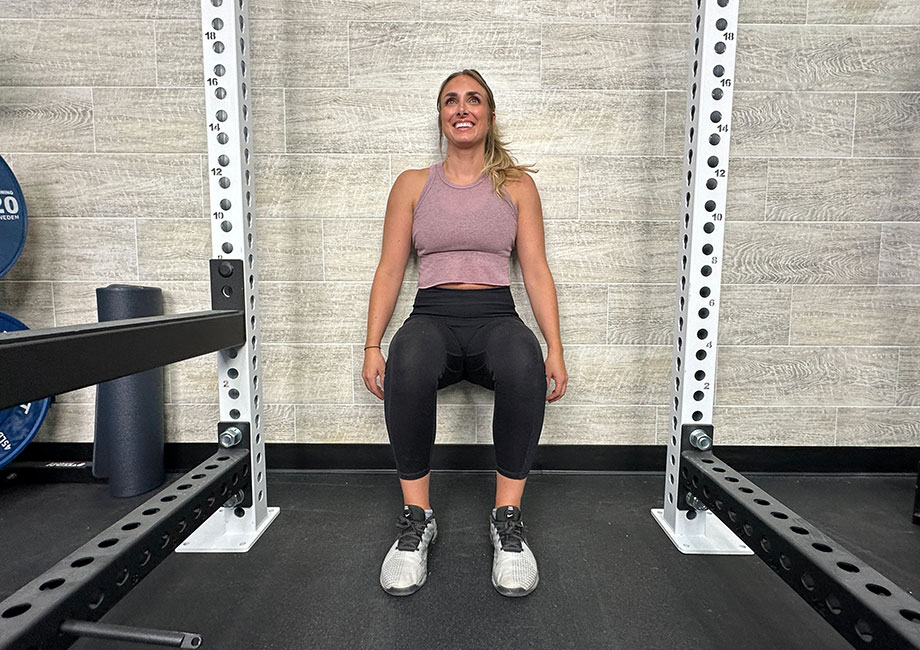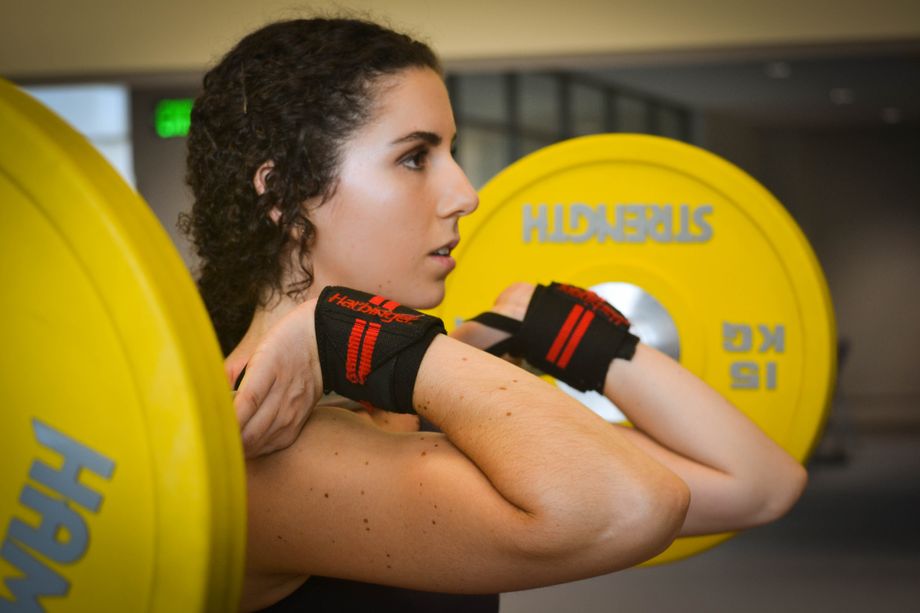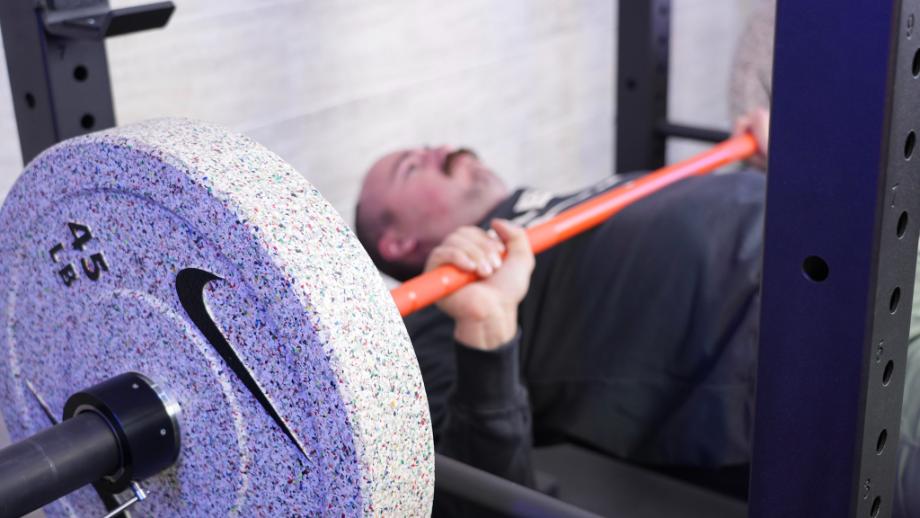Periodically, every social media platform is filled with a specific fitness or wellness challenge. Past examples include the 75 Hard Challenge, the 100 Push-Ups a Day Challenge, several ab challenges, meditation and yoga challenges, and more than I can list. What’s the current trend? Well, from what I’ve seen, there’s nothing more popular than the 28-Day Wall Pilates Challenge.
I’ll begin this guide by explaining exactly what Wall Pilates is. Next, I’ll go into more detail about the 28-Day Wall Pilates Challenge itself and how to get started. You’ll then learn about the benefits of completing this challenge based on my experience as a certified personal trainer, and to finish, I’ll share a sample Pilates full-body workout that you can try at home.
So, fire up your playlist, and let’s get started!
What Is Wall Pilates?
Wall Pilates—as the name suggests—is Pilates using a wall. As mentioned in our guide on how to do Pilates, Pilates was created in the 1920s by Joseph Pilates to help maintain full-body health. Benefits of Pilates include improved flexibility1, increased core strength, reduced stress and anxiety2, and improved athletic performance3.
With a standard Pilates workout, most exercises are performed on the floor using one of the best yoga mats. Examples of common Pilates exercises include ab roll-ups, glute bridges, leg circles, leg stretches, and side-lying kicks. Wall Pilates features similar exercises performed against a wall to either improve stability, increase intensity, or improve flexibility (or a combination of all three).
What Is The 28-Day Wall Pilates Challenge?
Although there are several 28-day Wall Pilates challenges on various platforms, two of the most popular come courtesy of Rachel’s Fit Pilates and Jenna Collins Fitness. Both challenges are free and provide daily Pilates videos for—you guessed it—28 days.
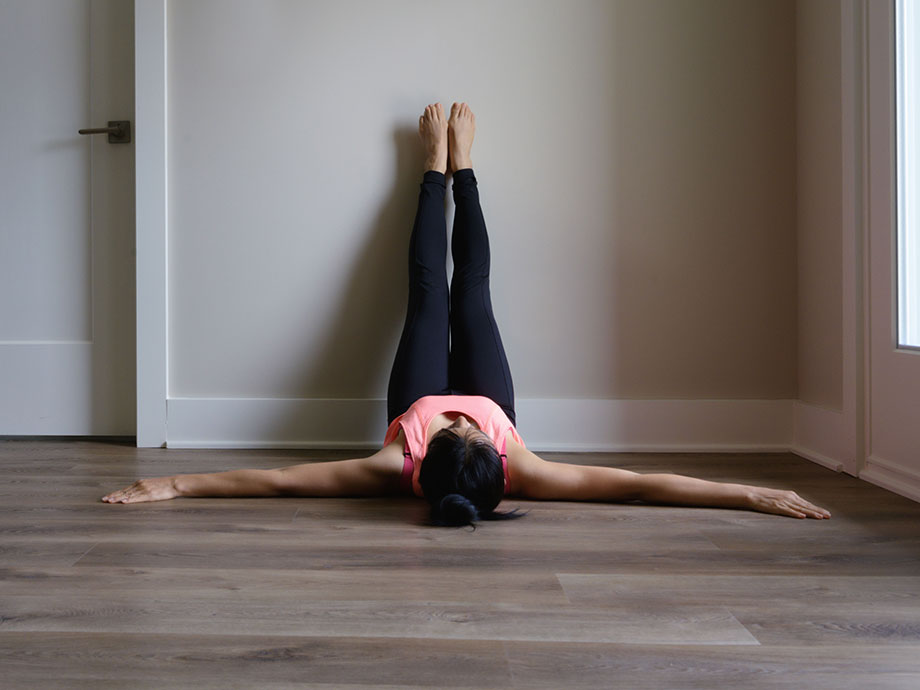
The challenge, therefore, is simple. You find the 28-Day Wall Pilates Challenge that suits you and follow along every day for 28 days. Each workout is between 10 and 30 minutes long, and the goal by the end of the Pilates practice is to build your core strength, improve your flexibility, reduce your overall stress and anxiety, and a host of other benefits of regular movement and exercise.
RELATED: Best Pilates App
How To Get Started With The 28-Day Wall Pilates Challenge
So, how do you get started with this Wall Pilates 28-Day Challenge once you’re ready to commit? Here are a few steps to set you up for success:
- Find the best workout plan for your fitness level. I’ve mentioned two popular 28-Day Wall Pilates challenges above, but there are several across social media. Each one is designed for different fitness levels, so try to find a Pilates workout that you’re comfortable enough to stick with.
- Make sure you have enough wall (and floor) space. Your wall workout needs enough space for you to comfortably lie down (next to the wall or perpendicular to it). Similarly, if you’re doing the 28-Day Wall Pilates Challenge at home, you’ll want to have room to spread out or put down an exercise mat.
- Gather the necessary equipment (if required). Some challenges require no equipment, while others ask for dumbbells, ankle weights, a set of resistance bands, etc. Survey the 28 days before you start to get an accurate picture of the equipment needed. There’s nothing worse than getting stalled after you’ve committed to start.
- Decide on a time to exercise. As a certified personal trainer (CPT), I’ve found that scheduling exercise beforehand means that you’re more likely to stick to it. I prefer the morning before I start my work, but everyone is different.
- Start with a light warm-up (if one isn’t included). Whether you’re doing a beginner workout or a more advanced one, it’s important to warm up your muscles. Some workout routines have a warm-up baked in, but if not, you can check out our guide to the best warm-up exercises and put together your own.
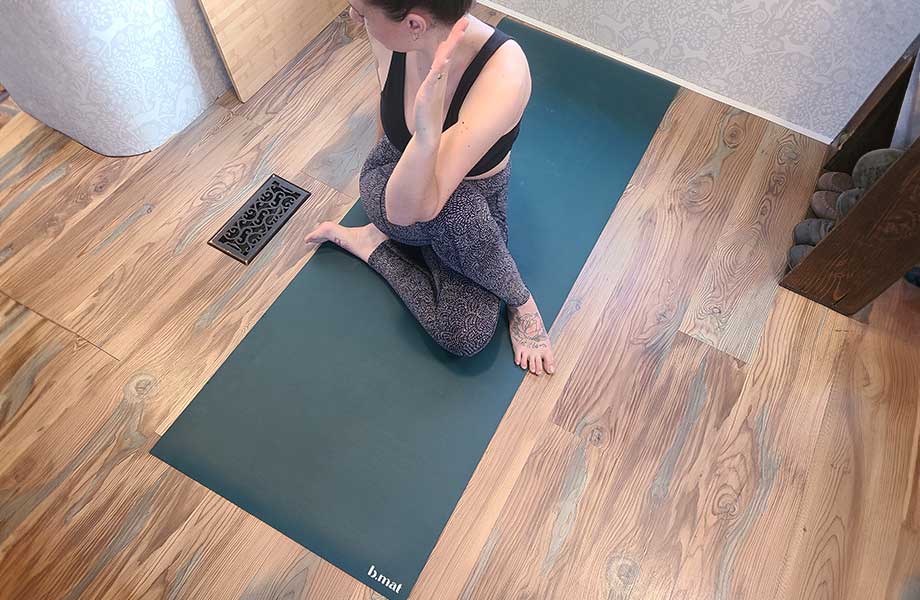
Sample Wall Pilates Workout
Here’s a beginner-friendly Wall Pilates workout that you can try now that you’re practically an expert on the subject:
| Exercise | Sets | Reps |
| Leg circles | 1-2 | 10 clockwise and 10 counter-clockwise, each side |
| Hip lifts | 1-2 | 10 |
| Wall push-ups | 2-3 | 12 |
| Wall squats | 2-3 | Hold for 15-30 seconds |
| Bicycle crunches | 1-2 | 10, each side |
| Wall plank | 1-2 | Hold for 15-30 seconds |
With this home workout, you’ll build strength in both your upper body and your lower body. No equipment is required, but if you find any of the exercises too easy, add ankle weights or a resistance band to make them more challenging. Also, feel free to add to or reduce the number of sets.
What Are the Benefits Of the 28-Day Wall Pilates Challenge?
Why is the 28-Day Wall Pilates Challenge so popular in the first place? It may be because of all the fantastic physical and mental (it feels incredible to finish a challenge) benefits you can gain from participating. Here are a few of those benefits explained:
Helps Improve Core Strength and Stability
Yes, this is a Pilates challenge and not an ab workout; however, one of the benefits of Wall Pilates exercises is that they can sculpt your core muscles. Tight abs don’t just look aesthetically pleasing; they can also help with other activities such as strength training, carrying groceries, walking, running, sitting for long periods, and more.
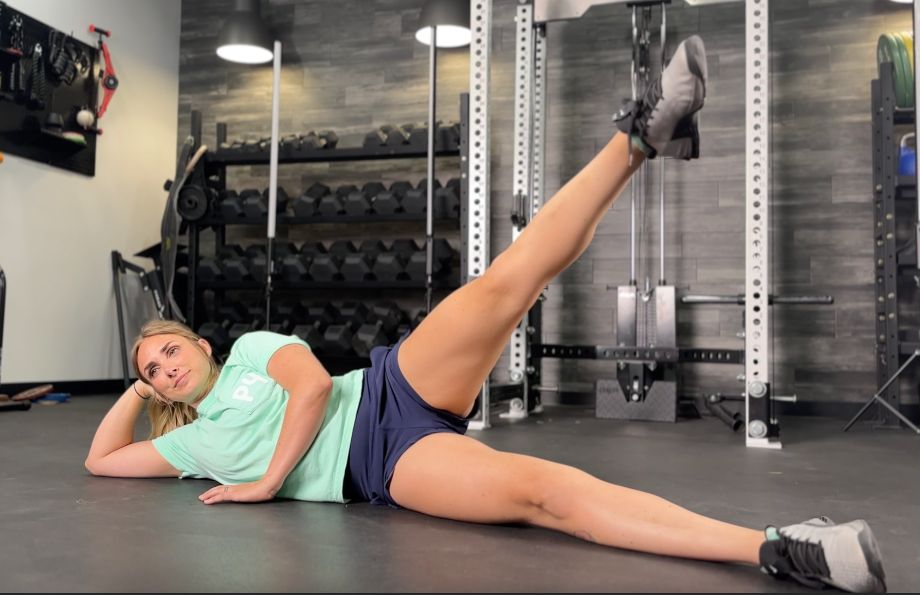
RELATED: The 12 Best Ab Exercises
Increases Mobility And Flexibility
Completing the 28-Day Wall Pilates Challenge can help to increase your mobility and flexibility. This is because your muscles stretch and lengthen when doing Wall Pilates exercises. If you suffer from poor posture as a result of sitting at a desk or in a car for long periods, Wall Pilates may help improve your posture by correcting muscular imbalances.
RELATED: Best Pilates Socks
May Reduce Lower Back Pain
A 2022 International Journal of Sports Physical Therapy4 systematic review found that “core stabilization exercises is an effective method to decrease pain, improve functionality, and increase core strength in patients with non-specific low back pain.” And yes—you guessed it—this includes Pilates exercises like those seen in many 28-Day Wall Pilates challenges.
28-Day Wall Pilates Challenge: Final Thoughts
The 28-Day Wall Pilates Challenge is everywhere on social media right now, and for good reason. Completing it can help to improve your core strength and stability, increase your mobility and flexibility, and reduce lower back pain. Pilates is also just a great way to keep you limber and active and help you strengthen your all-important core muscles.
If this challenge interests you, I say go for it! It could be your gateway into even greater fitness achievements.
28-Day Wall Pilates Challenge: FAQs
Is the 28-day wall Pilates challenge free?
The 28-Day Wall Pilates challenges by Rachel’s Fit Pilates and Jenna Collins Fitness are free. These are two of the most popular challenges we’ve found across various social media platforms. You may be required to enter your email address to gain access to the full programs, but there’s no payment required. There may be other 28-Day Wall Pilates challenges that cost money to unlock or are subscription-based, but most appear to be free.
Can I really lose weight with wall Pilates?
If your goal is weight loss, wall Pilates can help. Even though Pilates is more low-impact compared to other forms of exercise (for example, high-intensity cardio or resistance training), it still burns calories. That said, to lose weight, you need to be in a calorie deficit (which is where you eat fewer calories than you burn), hopefully as part of a healthy diet and training plan.
RELATED: Pilates For Weight Loss
How long until I see results from wall Pilates?
From my experience as a certified personal trainer, undertaking fitness or wellness challenges like the 28-Day Wall Pilates Challenge should help you see some results by the end of the program. This is especially true if you’re not currently doing any form of exercise. The idea behind fitness challenges is that you work out intensely over a short period of time to see more tangible results.
You may notice a change within the first few weeks that spurs you on to keep fighting another day, or you may not realize the full extent of your results until you complete the challenge. If not seeing fast results troubles you, give yourself small benchmarks as you progress, such as how a certain pose becomes easier the more you do it. You can also take progress photos and measurements to get a bigger picture of your progress.
That said, to see the true results from the 28-Day Wall Pilates Challenge (or any challenge), you’ll need to be consistent. With most exercise, there’s never an end point—it’s about incorporating it into your lifestyle so you continue to benefit.
Which is better, Pilates or wall Pilates?
Pilates and Wall Pilates are both great, so I can’t say one is better than the other. I don’t believe there’s a need to choose between the two because you can do regular Pilates and Wall Pilates exercises as part of your workout. Usually, it comes down to your preference, so choose what you enjoy.
References
- Oliveira LC, Oliveira RG, Pires-Oliveira DA. Comparison between static stretching and the Pilates method on the flexibility of older women. J Bodyw Mov Ther. 2016 Oct;20(4):800-806. doi: 10.1016/j.jbmt.2016.01.008. Epub 2016 Feb 3. PMID: 27814860.
- Fleming KM, Herring MP. The effects of pilates on mental health outcomes: A meta-analysis of controlled trials. Complement Ther Med. 2018 Apr;37:80-95. doi: 10.1016/j.ctim.2018.02.003. Epub 2018 Feb 13. PMID: 29609943.
- Finatto P, Silva ESD, Okamura AB, Almada BP, Storniolo JLL, Oliveira HB, Peyré-Tartaruga LA. Pilates training improves 5-km run performance by changing metabolic cost and muscle activity in trained runners. PLoS One. 2018 Mar 21;13(3):e0194057. doi: 10.1371/journal.pone.0194057. Erratum in: PLoS One. 2018 Apr 24;13(4):e0196509. doi: 10.1371/journal.pone.0196509. PMID: 29561907; PMCID: PMC5862462.
- Smrcina, Z., Woelfel, S., & Burcal, C. (2022). A Systematic Review of the Effectiveness of Core Stability Exercises in Patients with Non-Specific Low Back Pain. International journal of sports physical therapy, 17(5), 766–774. https://doi.org/10.26603/001c.37251



